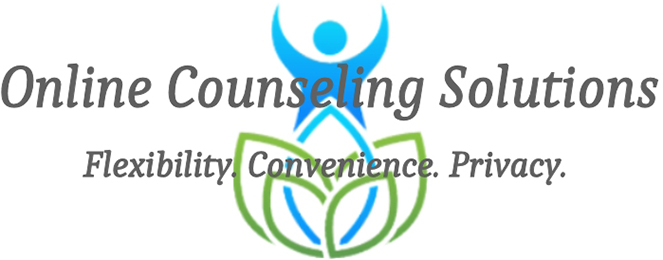By Hilary Akman, LMHC, LPC — Online Counseling Solutions | Serving Davie, FL, and all of Florida through online therapy
What Is Cognitive Behavioral Therapy (CBT)?
Cognitive Behavioral Therapy, or CBT, is one of the most researched and effective forms of counseling available today. At its core, CBT is based on a simple but powerful principle: our thoughts shape our emotions, and our emotions influence our behaviors and symptoms.
As a licensed mental health counselor serving Davie, Florida, I use CBT to help clients identify and challenge the thought patterns that keep them stuck in cycles of anxiety, stress, or self-doubt. Through guided sessions, clients learn to evaluate their thoughts both inside and outside of therapy. Over time, they gain the tools to become their own therapist—equipped to handle life’s challenges long after treatment ends.
More than 2,000 research studies confirm CBT’s effectiveness for a wide range of mental health issues, including anxiety, depression, ADHD, and stress management. Because it is evidence-based, educational, and solution-focused, CBT is different from traditional talk therapy. Rather than spending sessions simply venting about the week, CBT focuses on identifying patterns, learning new skills, and tracking measurable progress.
I often tell my clients in Davie that CBT is time-limited but results-driven. With consistency and willingness to complete therapy “homework,” many start to notice improvement by the third session.
How Thoughts Shape Emotions and Behaviors
Most people don’t realize how much their inner dialogue impacts their mood, confidence, and decisions. These reflexive or automatic thoughts happen so quickly that they often go unnoticed—but they have a powerful effect on how we feel and act.
One of the first skills clients learn in CBT is awareness—the ability to step back and notice thoughts without automatically believing them. You don’t have to accept every thought that passes through your mind as truth. Developing this awareness takes practice, but like any skill, it gets easier with time.
Common Distorted Thinking Patterns
CBT helps identify thinking patterns that contribute to suffering, such as:
- Catastrophizing: Expecting the worst possible outcome (“If I make a mistake, it will ruin everything.”)
- Black-and-White Thinking: Seeing situations as all good or all bad, with no middle ground.
- Mind Reading: Assuming others are judging or criticizing you without any real evidence.
- Should Statements: Setting unrealistic or rigid expectations (“I should never feel anxious.”)
For example, someone with social anxiety might think: “If I say the wrong thing, everyone will think I’m incompetent.” That thought triggers anxiety and embarrassment, which may lead to avoidance—reinforcing the belief and continuing the cycle.
Tools CBT Provides to Reframe Thoughts
CBT equips clients with practical, hands-on strategies to break unhelpful thought patterns and develop healthier responses.
Thought Records
Writing down unhelpful thoughts and identifying the emotions attached helps you examine whether those thoughts are truly accurate. Over time, clients internalize this process—no longer needing to write everything down because they’ve learned how to evaluate thoughts automatically.
Cognitive Reframing
This is the process of challenging distorted thinking and replacing it with more balanced perspectives. It’s not “toxic positivity” or pretending everything is fine. Instead, it’s learning to look at situations realistically and compassionately. A therapist trained in CBT can model this process, helping you see what balanced thinking actually sounds like.
Behavioral Experiments
These involve testing beliefs in real life. For example, someone afraid of speaking up might practice sharing an opinion at work and observing the outcome. Afterward, they evaluate what happened: What worked? What didn’t? What did I learn?
These exercises often reveal that feared outcomes are far less likely than expected.
When clients in my Davie counseling practice consistently use these tools, they notice real improvements—less anxiety, clearer thinking, and more confidence in daily life.
Why CBT Is Effective and Efficient
Unlike therapies that take years to bring about results, CBT is designed to deliver measurable change in a relatively short period of time. Clients benefit by:
- Gaining clarity and reducing mental clutter.
- Feeling less anxious and more empowered in daily situations.
- Learning lifelong skills that continue to help even after therapy ends.
- Experiencing progress within weeks, not years.
Because CBT is both research-supported and results-oriented, it’s considered the gold standard for treating anxiety, depression, and stress-related disorders. Many people appreciate its structured, educational nature—especially those who prefer clear steps and actionable tools.
Moving Forward
If you find yourself stuck in patterns of overthinking, worry, or self-criticism, CBT offers a proven path forward. With the right guidance, you can learn how to recognize and reframe negative thoughts, reduce distress, and respond to life with greater confidence and calm.
Whether you prefer in-person counseling in Davie, FL or online therapy anywhere in Florida, I help clients use CBT to achieve meaningful, lasting change.
👉 Stay tuned for Part 2: Understanding and Regulating Emotions with CBT, where we’ll explore how therapy helps bring balance to overwhelming feelings.

